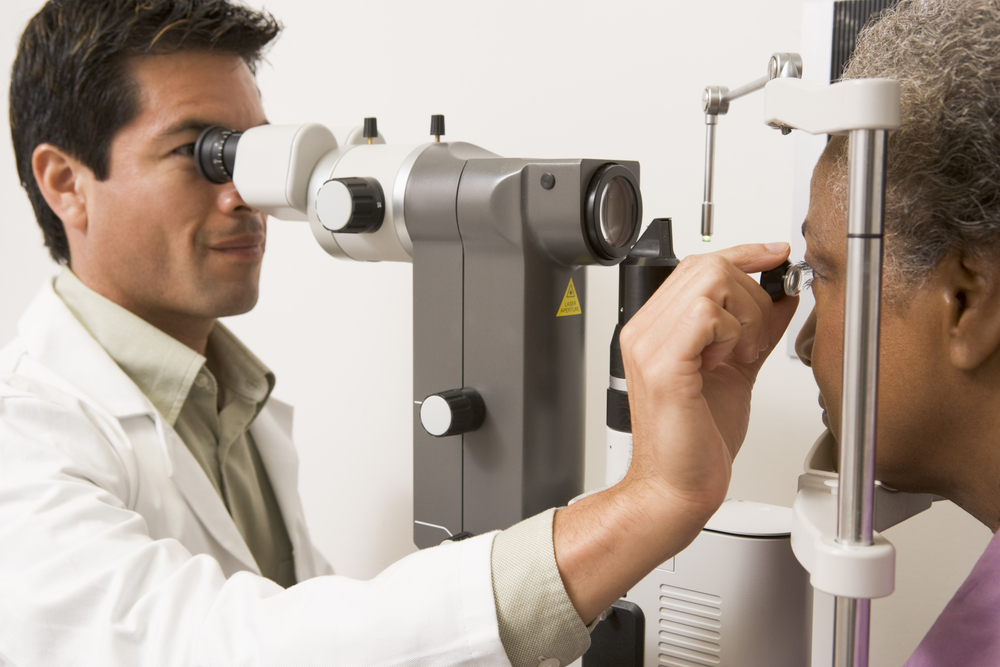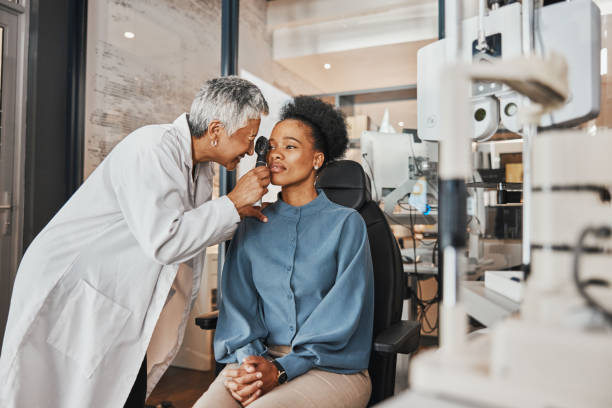The Importance of Regular Eye Exams: Insights From a Skilled Ophthalmologist
Routine eye examinations offer as an important component of healthcare that prolongs beyond mere vision correction. A seasoned eye physician can provide understandings right into exactly how these evaluations not only identify typical eye conditions however also disclose underlying health and wellness issues that may or else go unnoticed.
Advantages of Regular Eye Tests
Although several individuals might neglect the relevance of normal eye examinations, these assessments play a crucial function in preserving overall health and wellness and wellness. Normal eye examinations serve not just to analyze vision however additionally to detect early signs of systemic health and wellness issues, consisting of diabetes mellitus and hypertension. By determining these conditions at their creation, clients can get prompt treatments, dramatically enhancing long-term end results.
In addition, eye tests can help in keeping track of existing health and wellness problems, guaranteeing that any type of changes in vision or eye health are quickly addressed (optometrist). The evaluations permit customized referrals pertaining to glasses, way of living adjustments, and protective actions versus possible eye pressure or damages
Beyond physical wellness, the advantages of routine eye examinations include improving high quality of life. Enhanced vision helps with better performance in day-to-day tasks, from reading to driving, thus adding to higher independence and safety. Ultimately, focusing on eye exams promotes a positive strategy to health monitoring, encouraging individuals to organize their health. Routine exams are an important part of an extensive medical care approach, guaranteeing that both vision and general health and wellness are protected throughout life.
Common Eye Issues Detected
Routine eye tests are instrumental in finding a variety of typical eye conditions that can dramatically affect vision and general health. Among the most prevalent problems recognized during these exams are refractive errors, consisting of nearsightedness (nearsightedness), hyperopia (farsightedness), and astigmatism. These conditions usually materialize as blurred vision and can be conveniently remedied with prescription glasses or call lenses.
Another common issue is glaucoma, a group of eye illness that harm the optic nerve, often connected to increased intraocular pressure. Early detection is essential as it can avoid irreversible vision loss.
Age-related macular degeneration (AMD) is an additional considerable problem that affects central vision, especially in people over 50. Lastly, diabetic person retinopathy, a complication of diabetes mellitus, can lead to extreme vision problems otherwise monitored frequently. Via extensive eye examinations, these conditions can be recognized early, enabling timely monitoring and therapy to maintain vision and boost lifestyle.
Significance of Very Early Discovery
Early detection of eye problems plays an essential duty in protecting vision and avoiding significant wellness issues. Numerous eye illness, such as glaucoma, diabetic person retinopathy, and age-related macular degeneration, can advance calmly without noticeable symptoms in their early stages. By the time symptoms show up, permanent damage might have taken place, bring about irreversible vision loss.
Normal eye tests assist in early medical diagnosis, permitting timely intervention and therapy. As an example, dealing with elevated intraocular stress can protect against the beginning of glaucoma, while managing blood glucose levels can dramatically lower the risk of diabetic person retinopathy. In addition, conditions like cataracts can be efficiently managed with surgical treatment when identified early.

Just How Often Should You See?
Identifying the frequency of eye exams is vital for preserving optimum eye wellness and vision. The general suggestion for adults is to have a comprehensive eye examination every one to two years, depending upon private danger aspects and age. For people matured 18 to 60, an examination every two years is normally enough if no vision troubles exist. Nevertheless, those over 60 must take into consideration yearly examinations, as the danger of age-related conditions enhances considerably.
People with certain danger factors, such as a family members background of eye illness, diabetes, or existing vision troubles, might require more constant examinations. Children should have their initial eye examination at 6 months old, complied with by additional tests at age 3 and before getting in institution. Regular exams during childhood are critical as vision can transform quickly during developing years.
Eventually, the frequency of visits must be tailored to each person's conditions, including lifestyle, job-related dangers, and any type of pre-existing eye conditions. Consulting with an eye treatment professional can provide personalized referrals, making certain that your eye health click here now and wellness is on a regular basis kept track of and maintained.
Tips for Your Eye Test
Getting ready for your eye test can improve the performance of the browse through and ensure a detailed assessment of your eye health and wellness. To optimize your time with the eye doctor, it is important to gather appropriate details before your appointment. Start by compiling a list of any kind of view it medicines you are presently taking, consisting of over-the-counter drugs and supplements, as these can impact eye health and wellness.
In addition, document any type of signs and symptoms you have experienced, such as obscured vision, discomfort, or frustrations. This information will help your eye physician in diagnosing potential problems.
It is also advantageous to have a household history of eye problems handy, as hereditary aspects can add to your eye health and wellness. Lastly, think about arranging your test for a time when you are much less hurried, allowing you to ask inquiries and review your problems completely. By preparing adequately, you make sure that your eye examination is efficient and that your optometrist has all the necessary information to provide the very best treatment feasible.

Verdict
Regular eye exams play a crucial duty in maintaining both vision and general wellness. Ultimately, prioritizing thorough eye examinations contributes substantially to the preservation of vision and the improvement of top quality of life, highlighting the requirement of routine eye care in precautionary medical care techniques.
Normal eye exams are important in identifying a variety of typical eye conditions that can dramatically influence vision and overall health.Establishing the regularity of eye examinations is important for keeping ideal eye health and vision.Preparing for your eye examination can boost the effectiveness of the go to and make certain a complete analysis of your eye health (optometrist). By preparing effectively, you make sure that your eye examination is effective and that image source your eye medical professional has all the essential details to supply the best treatment possible
Ultimately, prioritizing comprehensive eye evaluations adds significantly to the conservation of vision and the renovation of top quality of life, highlighting the requirement of routine eye care in preventative medical care methods.
Comments on “Premier Optometrist Montgomery for Clearer Vision”